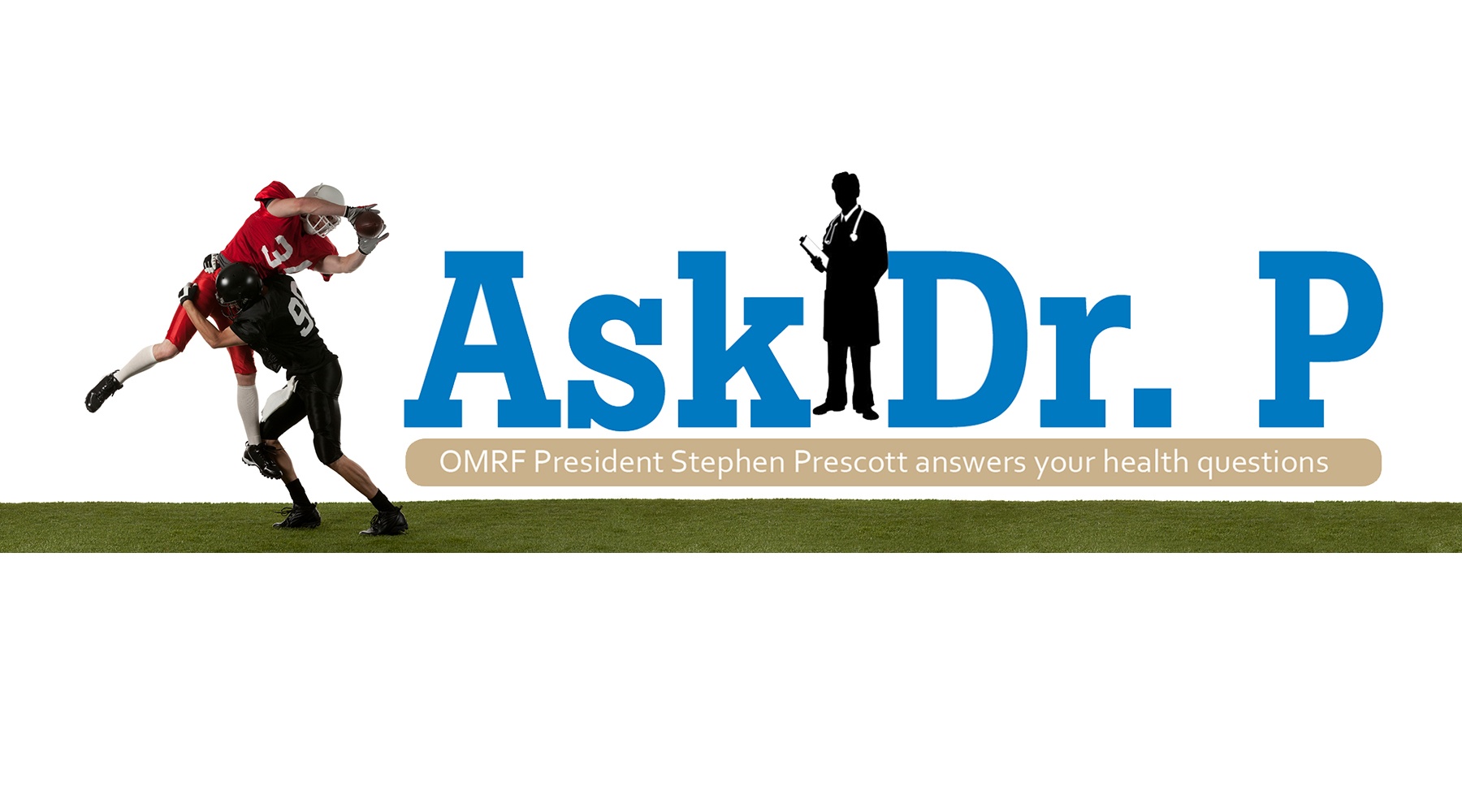Dear Dr. Prescott,
This is my 10-year-old son’s first season playing full-contact football. It seems like every day I read about the dangers of concussions and hear horror stories of athletes who’ve suffered long-term damage from them. My son can’t hit like a pro, but kids can really wallop each other on the field. Should I be worried?
Tim Hassen, Norman
While I don’t want to crush a young boy’s dreams of playing football, there are many studies that point to repeated concussions having deleterious effects later in life. That doesn’t mean everybody should stop playing football, hockey or other contact sports. But we should be conscientious about how those sports affect our bodies, especially young bodies like your son’s.
First of all, let’s talk about what a concussion really is: a brain injury, often caused by a blow to the head. The brain gets bruised and swollen because the skull restricts its ability to expand.
Like an injury to any other part of the body, concussions vary in severity and long-term effects. If you break a leg enough times, after a while, that leg doesn’t work exactly right again. The same goes for our brains. Too many concussions, especially ones that occur before the brain has time to heal from a previous blow, can cause damage that restricts language, motor functions and cognitive abilities.
But there’s good news. For one thing, we’re learning more about concussions all the time, and because of heightened awareness of the risks, coaches and parents pay closer attention to hits sustained in athletic competition. New products like padded helmet covers can add an extra layer of protection to those little noggins. Still, it pays to take some precautions of your own.
Consider having a neurologist take a baseline reading of your son’s brain. That will provide a comparison point should he sustain an injury later. And familiarize yourself with the symptoms of concussion. Difficulty thinking or concentrating, headache, dizziness, nausea, blurred vision, emotional shifts or interruptions in sleep patterns may point to a possible concussion and should prompt an immediate visit to the doctor.
Ultimately, the responsibility lies with the parents of any young athlete to make the best choice about future participation. It’s not an easy line to toe, but
(to use a metaphor from a sport that’s usually concussion-free) that’s par for the course when it comes to parenting.



